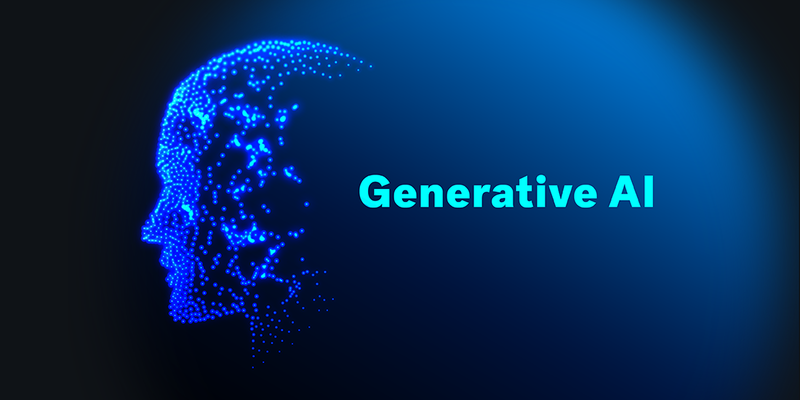Generative AI: The Creative Power of Machines

**Introduction:
Generative Artificial Intelligence (AI) is a cutting-edge field that has captured the imagination of scientists, artists, and technologists. It empowers machines to create content, whether it's art, music, text, or even entire applications. In this article, we'll explore the fascinating world of generative AI, its applications, and the potential it holds for reshaping various industries.
**Understanding Generative AI:
Generative AI is a subset of artificial intelligence that focuses on the creation of content rather than purely analyzing or processing existing data. It involves using algorithms and models to generate new, original content that can mimic human creativity. The foundation of generative AI often relies on neural networks, particularly recurrent neural networks (RNNs) and more recently, transformers.
**Applications of Generative AI:
1. **Natural Language Processing (NLP):
In the realm of NLP, generative AI models like GPT (Generative Pre-trained Transformer) have been developed to generate human-like text.These models can write articles, answer questions, and even engage in conversations.
2. **Art and Creativity:
Generative AI has taken the art world by storm.Algorithms like those used in deep dreaming and style transfer can create unique paintings, sculptures, and music compositions. Artists use generative AI to explore new realms of creativity and inspire their work.
3. **Content Generation:
Generative AI has applications in content creation for websites, social media, and marketing.It can automate the production of articles, advertisements, and product descriptions.
4. **Video Game Design:
Game developers are using generative AI to create game levels, characters, and even plotlines.This allows for procedurally generated content and infinite gameplay possibilities.
5. **Drug Discovery:
In the field of pharmaceuticals, generative AI assists in designing new drug molecules, predicting their properties, and optimizing chemical compounds.
6. **Healthcare:
Generative AI models can generate synthetic medical data for research and training purposes, creating realistic yet privacy-compliant datasets.
**Generative AI Models:
Several influential generative AI models have emerged in recent years, including:
- **GPT-3 (Generative Pre-trained Transformer 3):** Developed by OpenAI, GPT-3 is a language model known for its natural language generation capabilities.
- **DeepDream: A project by Google that uses generative AI to create psychedelic and surreal art from photographs.
- **MuseNet: An AI system capable of composing music in various styles, from classical to pop.
- **DALL-E: Also created by OpenAI, DALL-E generates images from textual descriptions, allowing it to create visuals for concepts or ideas.
**Challenges and Ethical Considerations:**
Generative AI is not without its challenges. Issues such as bias in AI-generated content, intellectual property concerns, and the need for responsible AI usage are important aspects to address.
**Conclusion:
Generative AI represents a thrilling frontier in technology and creativity. It is opening doors to new possibilities in art, content creation, and industries as diverse as healthcare and video games. As generative AI continues to evolve, it will likely play an even more significant role in reshaping how we generate, consume, and interact with content. However, it is essential to address the ethical and societal implications that come with this creative power, ensuring that generative AI remains a force for good in the world.



/http%3A%2F%2Fstorage.canalblog.com%2F81%2F39%2F1682427%2F134051547_o.png)
/http%3A%2F%2Fstorage.canalblog.com%2F44%2F24%2F1682427%2F133895170_o.jpg)
/image%2F0404232%2F20240519%2Fob_cdb796_black-modern-minimalist-daily-quotes-i.png)
/https%3A%2F%2Fmiro.medium.com%2Fv2%2Fresize%3Afit%3A1200%2F1%2AF0E-SRQarSoLwSnfS9eTnQ.jpeg)